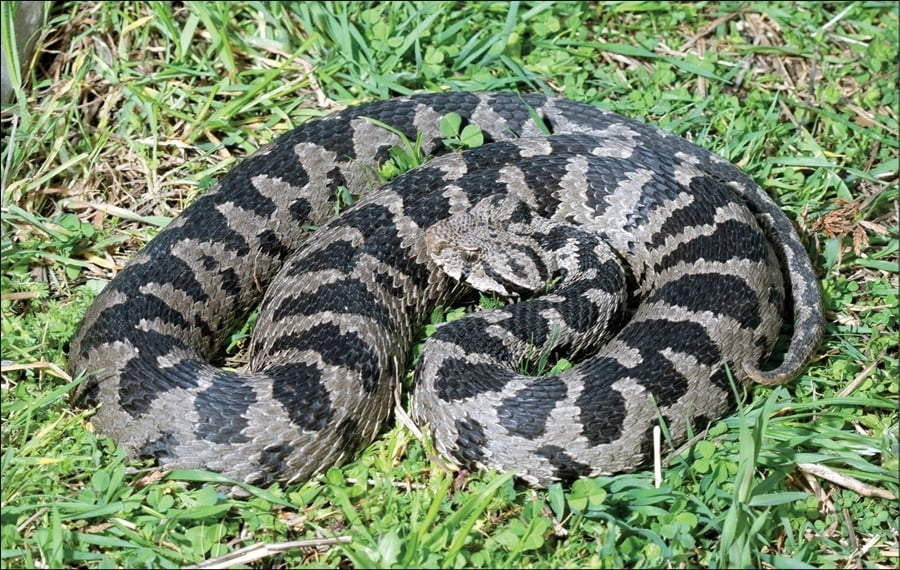
Greek scientists uncovered a population of poisonous snakes never seen before in Drama, northern Greece. Credit: Hepterozoa
A video of a snake filmed in the mountains of eastern Greece has led scientists to the discovery of a new, previously unrecorded population of highly venomous Ottoman vipers. The finding, which has significant implications for both conservation and public safety, was detailed in a study published on August 4 in the journal Herpetozoa.
The initial discovery began in June 2024 when a local, Ioannis Kazas, sent a video to a team of researchers to help identify a snake near the village of Aggitis. To their surprise, the video showed a juvenile Ottoman viper (Montivipera xanthina), a species known to inhabit Turkey and a small, distant part of mainland Greece—over 80 miles from Aggitis.
Initially believing it to be an isolated incident, the research team conducted follow-up surveys in October 2024 and March 2025. They successfully located three more Ottoman vipers, including a large adult male, confirming the presence of a “newly discovered” and “established population.” Researchers speculate the snakes likely reached the area via a narrow ecological corridor of rocky habitats.
The team, which included Ilias Strachinis and other researchers, emphasized that the discovery highlights the underexplored biodiversity of eastern Greece. It also underscores the need for improved public health preparedness in the Drama Prefecture, where the village of Aggitis is located.
How Poisonous is the Ottoman Viper?
The Ottoman viper (Montivipera xanthina) is considered a highly venomous snake. Its venom is a powerful hemotoxin, meaning it primarily affects the circulatory system.
Key effects of the venom include:
Local Symptoms: A bite typically results in severe pain, swelling, bruising, and blistering around the bite site.
Systemic Symptoms: If left untreated, the venom can cause more serious, life-threatening complications. These can include internal bleeding, blood pressure drop, kidney failure, and tissue damage (necrosis).
Fatality: While not all bites are fatal, an untreated bite from an adult Ottoman viper is considered a serious medical emergency and can be lethal. The venom is potent enough to cause significant harm and death without proper medical intervention, which usually involves administering antivenom.
In short, this is not a snake to be taken lightly. Its presence in a new area has rightfully raised concerns for public health and safety.
Related: Man Bitten 200 Times by Snakes Helps Create Breakthrough Antivenom